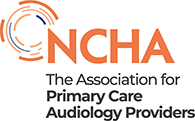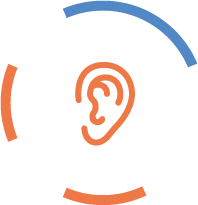20 August 2021
NCHA member update – 20 August
This week:
- Covid update
- PSA review of HCPC 2020/21
- National Disability Strategy pledges to drive assistive tech
- Other sector news
- Parliamentary update
Self-isolation for health care workers
Following the advice in our newsletter on Friday 13 August, NHS England has clarified that the relaxation of self-isolation requirements for asymptomatic double vaccinated staff (who meet the conditions below) does NOT apply to individuals living in the same household with a positive contact. They will continue to need to isolate in line with government guidance as now.
The same rules apply in Northern Ireland and we are checking with Scotland and Wales (advice expected early next week).
In the meantime, we have updated our NCHA guidance for the four UK nations as follows:
England: Those who are fully vaccinated (with a minimum of 14 days after the second dose) will be exempt from self-isolation if they are advised that they have been in close contact with a positive Covid-19 case.
Scotland: People who are fully vaccinated (with a minimum of 14 days after the second dose) and those under 18 years old are exempt from self-isolation if they are advised that they have been in close contact with a positive Covid-19 case. They must also have had a negative PCR test result.
Wales: Fully vaccinated adults (with a minimum of 14 days after the second dose) and those under 18 years old are exempt from self-isolation if they are advised that they have been in close contact with a positive Covid-19 case.
Northern Ireland: Those who are fully vaccinated (with a minimum of 14 days after the second dose) will be exempt from self-isolation if they are advised that they have been in close contact with a positive Covid-19 case. They are still advised to take an additional PCR Covid test on days two and eight of the process. If the result is positive, they will need to self-isolate.
Provided they are not living in the same household with a positive contact, individuals meeting the above criteria can end isolation and return to work as long as they follow infection prevention and control procedure in line with audiology and otology guidance. If they live in the same household with a positive contact, they should continue to self-isolate, says government guidance.
We continue to advise members to check your national government website regularly for the latest local information.
RCCP audit postponed until 2022 owing to Covid
The Registration Council for Clinical Physiologists (RCCP) has confirmed that its next CPD audit for registrants will now not take place until 2022 (date to be finalised). A previous letter to registrants had notified that the audit due would be rescheduled for October 2021. However, the audit has been postponed until 2022 as the Covid-19 pandemic has disrupted normal practice for many registrants.
Invitation to hospital audiology staff to join Covid investigation
NHS audiologist Darren Cordon, Head of Adult Audiology, UHL, is inviting fully qualified audiologists employed directly by an NHS Trust to contribute their professional experiences during the Covid-19 pandemic as part of his Doctorate of Professional Practice at the University of Northampton. The information gathered is also intended to help leaders in audiology and the NHS plan for any future extreme pressures on the NHS.
Learn about the project.
The Health and Care Professions Council (HCPC) has met 13 of the Professional Standards Authority's 18 Standards of Good Regulation and made progress in achieving the other five. However, according to the Authority's annual performance review, the HCPC did not meet the Standard for equality, diversity and inclusion (EDI) or Standards 15, 16, 17 and 18 relating to fitness to practise.
Commenting, HCPC welcomed the report and said: "We pleased that the PSA acknowledged that we maintained and indeed improved, during a highly demanding 12-month period."
National Disability Strategy pledges to drive assistive tech
The National Disability Strategy presented to Parliament in July pledges to go further in driving assistive technology innovation. When integrated into smartphones and specialised assistive products like wheelchairs, hearing aids and screen readers, technology can solve many challenges disabled people face.
National Guideline Centre seeks experts on falls in older people
The National Guideline Centre (NGC), which is developing a topic-specific guideline on Falls in older people: assessing risk and prevention, is seeking practising healthcare professionals with expertise on falls in older people to join its guideline committee and advise on the subject. The deadline for applications is Monday 6 September.
Find out more, including how to apply.
Hearing loss in the media misses the mark
The Hearing Journal reports that more media coverage of hearing loss and deafness has spotlighted audiology but "often misses the mark". Films like A Star is Born and the TV show The Bachelor, influence the public's perception "in ways that could be damaging", said the report, and called on the hearing community to continue informing and improving awareness of hearing loss and technology.
Read more.
Judge rules against Government over lack of BSL interpreter
Justice Fordham has ruled that the UK Government breached the 2010 Equality Act when it failed to provide a British Sign Language (BSL) interpreter during coronavirus scientific briefings. Although the RNID welcomed the outcome and recognised the #WhereIsTheInterpreter campaign's efforts, it urged the Government to "go beyond the limited scope of the judgement and commit to the total implementation of our shopping list on accessible comms".
Learn more.
Could speech-in-noise hearing issues be a dementia prevention target?
A study by University of Oxford researchers published in the Alzheimer's & Dementia journal suggests that people who find it hard to hear friends in a noisy environment are twice as likely to get dementia as those who have no difficulty. The academics asked 82,000 participants over 60 to identify spoken numbers read out while white noise played in the background. After 11 years of study, 1,285 of them had developed the disease.
Find out more.
Minister for Health answers ear wax removal question
Secretary of State for Health and Social Care Edward Argar has answered a Parliamentary question from Munira Wilson MP about the merits of providing ear wax removal procedures on the NHS for pensioners and those on low incomes.
Mr Argar said that the procedure could be undertaken at a GP practice if "clinically necessary" or the patient "should be referred to an appropriate service depending on the arrangements in place in the local area, including for pensioners and those on low incomes. Local commissioners are responsible for meeting the health needs of their local population and should continue to ensure there is appropriate access to ear wax services."

Press enquiries
Media enquiries should be directed to [email protected] or call 020 7298 5110.
We are happy to put you in touch with our expert policy advisers who can comment on a variety of issues.
You can also follow us on Twitter and LinkedIn.

 Your hearing and aural health
Your hearing and aural health  Commissioners and Policymakers
Commissioners and Policymakers  Member support and guidance
Member support and guidance News and views
News and views
 Hearing map
Hearing map
